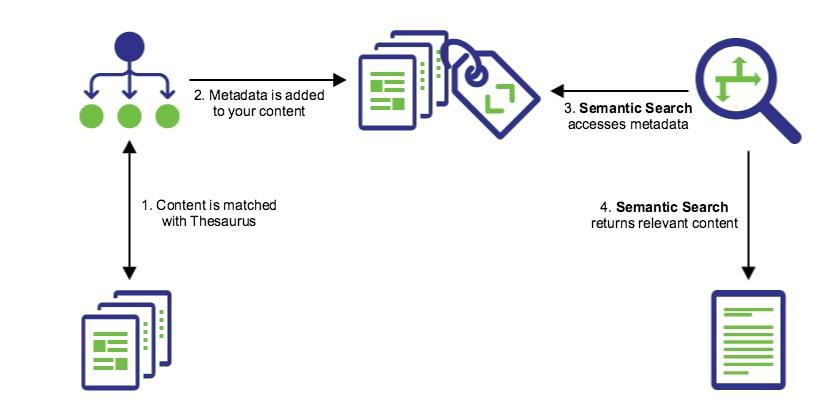In the ever-evolving landscape of digital marketing, the quest for the perfect keyword has long reigned supreme as the cornerstone of effective search engine optimization (SEO). However, as technology advances and user behaviors shift, the traditional methods of keyword targeting are being challenged by new paradigms. In this article, we delve into the future of keyword targeting, exploring how artificial intelligence, voice search, and semantic understanding are reshaping the way brands connect with their audiences. join us as we navigate the intricate web of search algorithms and consumer intent, uncovering insights that will not only inform your strategy but also prepare you for the next wave of search innovation. The journey might potentially be complex, but the destination promises to be transformative for marketers and users alike.
Exploring the Evolution of Keywords in search Strategies
The landscape of search strategies has dramatically changed over the years, evolving from simple keyword matching to complex, context-aware algorithms. Keywords are no longer just isolated phrases that users type into a search box; they represent nuanced queries reflecting user intent and behavior. As search engines harness advanced technologies like Natural Language Processing (NLP) and machine learning, the importance of semantic search has surged. This shift emphasizes understanding the meaning behind keywords rather than merely locating them,paving the way for more elegant targeting tactics.
To effectively adapt to this conversion, marketers now employ a variety of strategies, including:
- Utilizing long-tail keywords that capture specific queries
- Implementing content clustering to improve topical authority
- Emphasizing user intent through tailored content creation
- Leveraging voice search optimization to cater to conversational queries
In this future landscape, keyword targeting will not just be about ranking higher but understanding the extensive journey of the user. By analyzing data trends and behavioral insights, businesses can refine their approach, ensuring their content resonates with the right audience, ultimately leading to increased engagement and conversions.

Harnessing AI and Machine Learning for enhanced Keyword insights
As the digital landscape evolves,marketers increasingly turn to artificial intelligence and machine learning to gain deeper insights into keyword performance. These advanced technologies can analyze vast amounts of data, identifying trends and patterns that human analysts might overlook. By utilizing AI-driven tools, businesses can not only optimize existing campaigns but also discover new opportunities for keyword targeting. Examples of AI capabilities in this area include:
- Predictive analysis: Anticipating shifts in search behavior based on past data.
- Natural language processing: Understanding user intent behind queries to refine keyword strategies.
- Sentiment analysis: Gauging public perception around certain topics to inform content decisions.
Moreover,machine learning algorithms can improve over time,adapting to ongoing changes in consumer behavior and search engine algorithms. With real-time data, marketers can adjust their keyword strategies on the fly, ensuring maximum relevancy and effectiveness. The table below outlines a few key benefits of integrating AI and machine learning into keyword research:
| Benefit | Description |
|---|---|
| Enhanced accuracy | Reduces guesswork by providing data-driven insights. |
| Increased efficiency | Streamlines the keyword research process, saving time and resources. |
| Improved targeting | Identifies niche keywords that may convert better. |

Navigating Semantic Search and User Intent for Greater Visibility
As search engines evolve, understanding the nuances of semantic search becomes essential for optimizing content effectively. By grasping user intent, businesses can create targeted strategies that go beyond traditional keyword targeting. This requires a blend of high-quality content and comprehensive keyword analysis that considers the context behind user queries. To successfully navigate this landscape, focus on the following elements:
- Contextual Relevance: Ensure that content aligns with the broader topic users are searching for, providing value that addresses their specific needs.
- Natural Language Processing: Optimize for natural language queries, incorporating long-tail keywords that reflect everyday conversation.
- User Experience: Enhance site navigation and mobile responsiveness to encourage longer visits and lower bounce rates, which signals to search engines the quality of content.
To visualize the relationship between keyword targeting and user intent, consider the following matrix that outlines different user query types and corresponding content strategies:
| User Query Type | Content Strategy |
|---|---|
| Informational | Create in-depth guides and articles that answer common questions. |
| Transactional | optimize product pages with clear CTAs and user-generated reviews. |
| Navigational | Ensure brand visibility with clear navigation and landing pages. |

Practical Tips for Adapting Keyword Targeting to a Changing Landscape
As the digital landscape evolves, staying ahead of the curve with keyword targeting requires a few strategic adjustments. First, embrace a broader semantic approach to keyword selection. Instead of focusing solely on exact match keywords, consider incorporating long-tail variations and related phrases. This not only improves relevance but also aligns with user intent. Make use of tools like Google’s Keyword Planner and various SEO analytics platforms to uncover emerging trends and search queries that reflect the evolving language of your audience.
Moreover, continuously monitor your competitors and industry shifts to refine your keyword strategy. create a regular schedule for auditing your keyword performance, ensuring that you can swiftly adapt to changes in search behavior. Utilizing a framework can definitely help streamline this process. Consider using a keyword tracking table to keep track of performance metrics:
| Keyword | Search Volume | Ranking position | Competitor Strategy |
|---|---|---|---|
| Eco-pleasant products | 15,000 | 5 | Focus on green certifications |
| Sustainable living tips | 10,500 | 8 | Leverage influencer partnerships |
| Zero waste practices | 7,200 | 12 | Highlight case studies |
Implementing these adjustments will not only enhance your keyword targeting efforts but also position your brand effectively in a competitive market. Regular reassessment and being open to change will pave the way for prosperous optimization in an unpredictable habitat.
Concluding Remarks
As we stand on the brink of a new era in digital marketing, the future of keyword targeting is poised to transform the way brands connect with their audiences. With emerging technologies reshaping search behaviors and consumer expectations, businesses must adapt to remain relevant in an ever-evolving landscape. Embracing innovative strategies,such as semantic search and AI-driven insights,will not only enhance visibility but also forge deeper connections with potential customers. The path ahead is one of possibility and challenge,requiring a delicate balance between creativity and technical prowess. as we navigate this dynamic frontier, it is essential for marketers to stay informed, agile, and forward-thinking.The evolution of keyword targeting may be just beginning, but its potential to redefine the digital marketing landscape is immense. The question remains: are you ready to embark on this journey into the future?